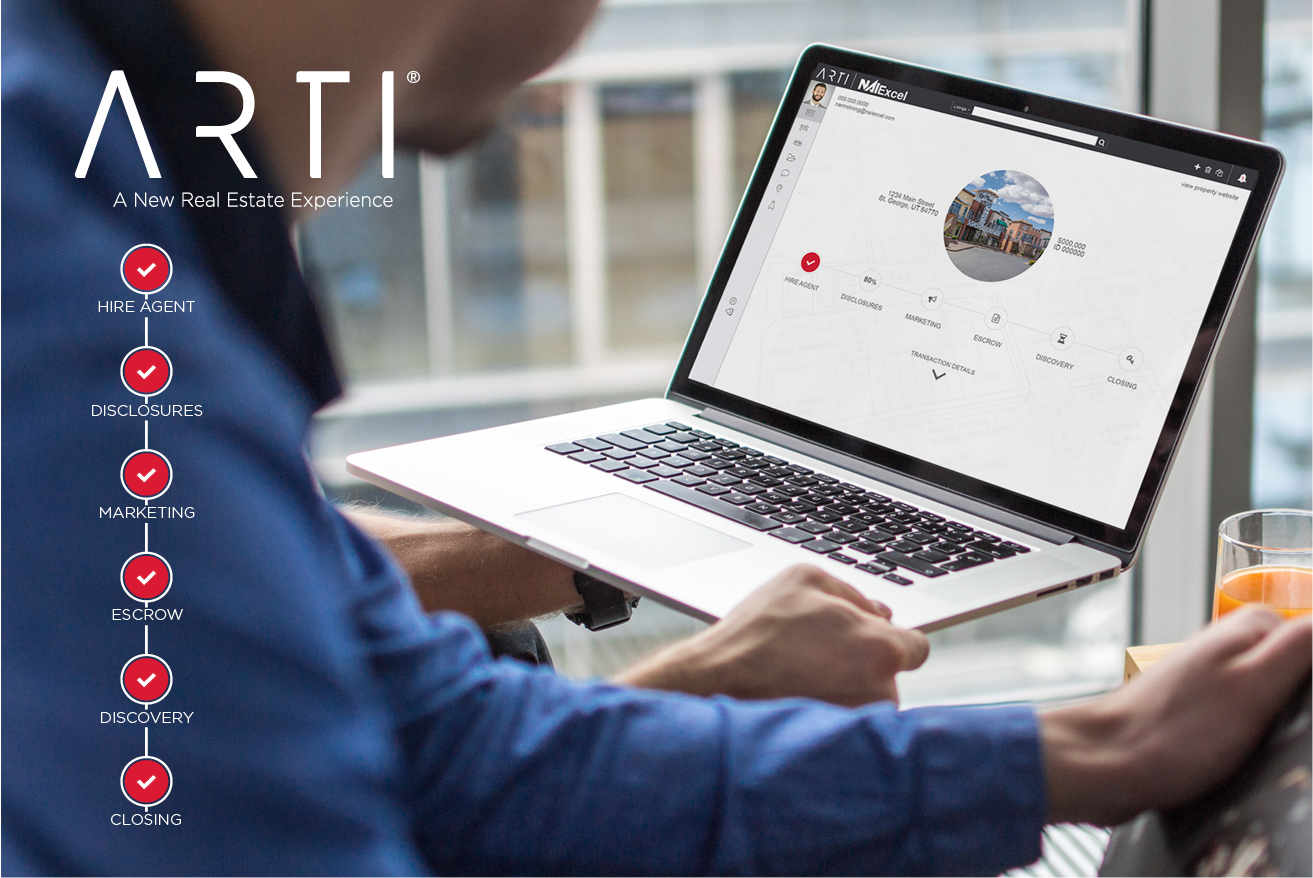Tech.
New tech is entering the commercial real estate market that will change the way we transact for years to come. Consumers are asking to be involved in a more transparent real estate process facilitated by additional transaction structure. This is paving the way for faster purchase and sale timelines and a better overall experience for clients and market participants in a commercial real estate transaction.
The largest recent venture capital play in commercial real estate is Softbank’s $4.4b investment in WeWork, a company redefining shared workspace. Compass Real Estate, based in New York has received $1.2B in venture capital to date, also significantly from Softbank, for its luxury residential model and expansion into commercial real estate. Technology companies, like Costar Group and new arrival CREXi, are facilitating nationwide listing display and research. Last, we are seeing significant investment in traditional real estate brokerage models, such as Corcoran Group, Purple Bricks, and Opendoor.
Even with all of this capital investment in business models and technology offerings, the human interaction component in real estate is much the same as it has always been. These technologies improve the process, but buyers and sellers of commercial assets still want a trusted advisor to market their property, problem solve, and ensure a successful transaction.
New transaction management software is bringing the client closer to the deal and providing increased transparency for buyers and sellers. Real-time notifications, client access, and technology-enabled shared workspaces are improving transaction decision making. Better integration of these platforms with related transaction participants including lenders, title companies, attorneys, and appraisers will improve information sharing. The natural evolution of these platforms will be a reduction in transaction cycle time and higher probability closings.
The basic framework that enables this process is converted to electronic filing systems, standardization of processes, and integration of marketing and client communication systems. While some commercial real estate brokerages still manage transaction details and processes via paper and file cabinets, the transition to electronic files is accelerating the adoption of a broader array of technology solutions. As brokerages continue to move into fully enabled tech platforms, such as ARTI, the consumer benefits, and brokerage professionals improve efficiency.
Examples of this transaction evolution are already playing out in the marketing of commercial real estate. Today, it is common to find a property online and view dozens of high-quality photos in addition to standard marketing materials. Interested parties might then review a Matterport 3D virtualization of the property in high definition allowing them to walk through the property at their own pace and see every inch of the property. As interest builds, they may sign a confidentiality agreement and enter a deal room where additional due diligence materials are available including financial information, additional building documentation, surveys, environmental and geotechnical engineering, title research, and even financing proposals. From there, it is a simple step to execute an integrated purchase contract or letter of intent, all enabled by technology.

While technology has shortened how long it takes to search and discover what is available, the time from contract negotiation to close commonly takes 30-120 days or more depending on the transaction type. Currently the process of appraisal, loan underwriting, property inspection, title research, and other due diligence are all human elements that can result in renegotiation of the transaction every time additional information is discovered.
To accelerate due diligence and increase closing probability, these items will more often be completed in advance of contract negotiation or in some cases automated. Where due diligence information is immediately available, completing due diligence prior to contract negotiations removes the uncertainty of the transaction and increases the speed. It reduces cost and uncertainty for both buyer and seller. A single technology platform is not likely to accomplish all of these steps; however, integrated solutions will enable significantly accelerated transactions in some instances.
Finally, it is worth remembering that many of the most significant impacts to real estate won’t be the technology that changes how we transact real estate, but rather the way technology changes the way we use real estate. The recent shift nationwide to favor industrial and distribution over regional malls and other retail outlets significantly impact the use and development of both industrial and retail real estate. The office market has similar exposure as more people work remotely, collaborate in cloud based platforms, and adopt a decentralized approach.
Technology innovation is fueling the growth of cities like Austin, San Francisco, and Salt Lake City that are transformative. Consider the impact Amazon HQ2 had not only on New York and Virginia, who were awarded sites, but on all of the cities who competed for the potential jobs and economic development. Self-driving cars may change the way retail centers, parking structures, and freeways are redeveloped. 3D printer technology could localize manufacturing and alter distribution. 5G connectivity will rapidly change the speed at which we interact with technology that could have far reaching real estate implications.
Every technology development has a real estate implication. Understanding how these technology innovations impact the way we consume real estate will be at least as important as understanding how these solutions will impact the way we transact real estate.
Matt Walter, Jon Walter, and Neil Walter are founding partners of the technology platform ARTI and operate real estate brokerages in the West.
